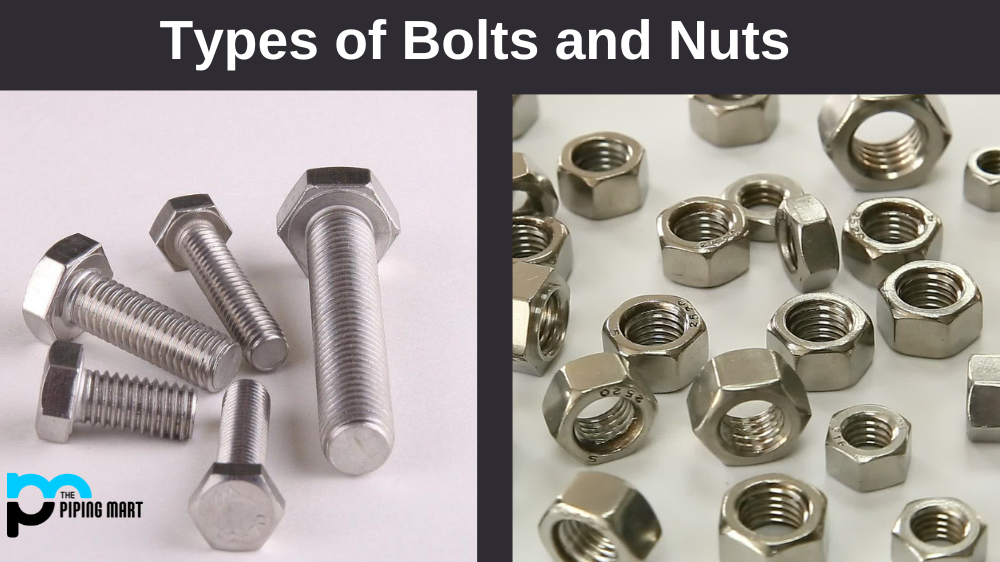Creating with Nuts and Bolts: Creative DIY Ideas

In this world of DIY projects and home improvement, fasteners are often the unsung heroes that bring everything together. These essential fasteners come in a variety of shapes, sizes, and materials, making them versatile components that can be used in numerous applications. Whether you're an experienced builder or just starting with DIY crafts, understanding the different types of nuts and bolts and their specific uses is essential for choosing the right fastener for your project.
This guide will explore everything you need to know about nuts and bolts, from the basics to more specialized types. We'll discuss the most common bolting options available, how to choose between them, and what makes each type unique. Through insights into their roles in heavy-duty construction, automotive repairs, and home improvement, this comprehensive overview aims to equip you with the knowledge to confidently tackle projects of any scale. Join us as we explore the fascinating world of nuts and bolts and discover how they can enhance your DIY experience.
Grasping Fasteners and Bolts
Nuts and nuts are core components in the realm of fasteners, serving crucial roles in various applications, from construction to automotive repairs. At their heart, a bolt is a round fastener with a top at one side and threads along the body, designed to be used with a nut. The nut is a six-sided or circular piece with an inner thread that interlocks with the fastener, allowing for firm fastening when secured together. Grasping the varieties, uses, and details of nuts and nuts is crucial for any do-it-yourself enthusiast or expert builder.
The diversity of nuts and nuts means they are customized for particular applications, offering multiple strengths, durability, and resistance to environmental factors. Common types include hex fasteners, transport fasteners, and lag bolts, each suited for different materials and loads. Likewise, nuts come in various forms such as standard hex nuts, security nuts, and wide-based nuts, each engineered to provide particular advantages based on the project's requirements. Understanding how to choose the right type ensures the longevity and security of any task.
Moreover, comprehending the substances and finishes used in nuts and bolts can significantly affect performance and longevity. Choices such as stainless steel, brass, and high-strength metal provide different strengths and corrosion resistance, making them suitable for specific environments. For example, stainless steel bolts offer superior resistance to rust, making them suitable for outdoor use. By choosing the appropriate type and material, do-it-yourselfers can enhance their projects' construction integrity and ensure lasting effects.
Components and Coatings
When selecting fasteners and screws for your tasks, the material they are crafted from plays a key role in their performance and longevity. Steel is the most common material used, known for its durability and affordability. It is available in different grades, with mild steel being commonly used for general applications while alloy steel is preferred for heavy-duty requirements. Brass and aluinium are also employed, offering benefits like rust resistance and lightweight properties, which makes them suitable for particular applications in automotive and aviation industries.
Finishes significantly improve the performance of fasteners and screws, especially in outdoor environments where contact to moisture can lead to corrosion. Metal plating provides a shielding layer that stops rust, while galvanized fasteners provide even greater protection due to their more substantial zinc coating. Other choices include powder finish and anodizing, which can add a decorative finish while providing further resistance to abrasion and corrosion, making them suitable for decorative uses in home improvement projects.
Understanding the differences between finishes is crucial for ensuring longevity and dependability. For example, corrosion-resistant bolts may be worth the cost due to their inherent rust resistance, rendering them ideal for use in demanding environments. In comparison, if financial limitations exist, choosing zinc-plated bolts can provide adequate protection for less demanding applications. Selecting the right material and finish is essential for ensuring the effectiveness of your DIY projects.
Buying Manuals and Contrasts

When choosing fasteners and hardware for your task, it is important to take into account the particular needs based on the application. Factors such as strength, environmental conditions, and compatibility of materials play significant roles. For example, if you're engaged on an exterior task, choosing for corrosion-resistant substances like stainless steel or zinc-coated hardware is advisable. Understanding whether the hardware are going to be applied for wood or metal applications will also inform your selection to ensure optimal performance.
Accurately measuring nuts and hardware correctly is crucial to ensure a good fit. Use calipers or a ruler to measure the diameter, length, and thread count. When comparing various options, always refer to a bolt durability comparison chart that outlines the tensile strength and breaking strength of different types. This helps in determining the most suitable fastener that aligns with your project’s needs and safety regulations.
For a more informed purchase, familiarizing yourself with the terminology used in hardware is beneficial. A thorough dictionary of nuts and hardware can assist you in understanding the differences between various kinds. Additionally, think about whether you need specialty hardware for unique applications. By being informed about the variations between international and imperial hardware and knowing what to look for in high-quality products, you can make a sound decision that ensures the success of your DIY endeavors.
